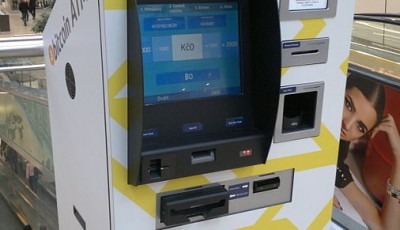Bitcoin surges amid growing worries about Grexit
The price of Bitcoin rose by as much as seven percent on Tuesday and was heading toward its longest winning streak in 18 months as worries that Greece could drop the euro prompted speculators and Greek depositors into Bitcoin, reported Reuters.
Prime Minister Alexis Tsipras took aim at the country’s creditors on Tuesday as he ignored several warnings that Europe is preparing for a “Grexit,” said Reuters. The cash-strapped nation faces €1.6 billion ($1.8 billion) in repayments to the International Monetary Fund by the end of the month.
Joshua Scigala, co-founder of Vaultoro.com, a Bitcoin-gold exchange, told Reuters that Greeks were purchasing Bitcoin as their trust in authorities eroded. It is also not clear what currency would be adopted if Greece drops the euro – another possible factor driving Greek demand for Bitcoin.
“Some people aren’t waiting for the government to figure out an exit plan and are doing it for themselves,” Scigala said. “You have people worrying about their families’ wealth or their life savings, and worrying that their money might be locked up in banks…They’d rather hold money in a private asset like gold or bitcoin.”
Scigala told Reuters that over the past two months, with Greece locked in negotiations with its creditors, Vaultoro had seen a 124 percent increase in inflows from Greek IP addresses.
The news agency noted that in March-April 2013, Bitcoin’s value skyrocketed by nearly 700 percent in just a month as Cyprus cracked down on withdrawals and seized deposits, shaking faith in fiat currencies.
Paul Gordon, founder of Bitcoin company Quantave and a board member of the UK Digital Currency Association, told Reuters that although he did not believe that concerns about Cyprus had spurred that rally, fears of a Grexit could be triggering the current one, with more people now being aware of Bitcoin.
“This time round, the worries about Greece could be filtering through. (Bitcoin) could provide an alternative outlet for some people who are concerned about capital controls, along with more traditional methods,” Gordon said.
Reuters noted that some have suggested that a digital currency, backed either by Greece’s assets or future tax revenues, could be introduced as a parallel currency to the euro in Greece in order to avoid a Grexit.
Image credit:
Public domain image by cs:User:-xfi-













